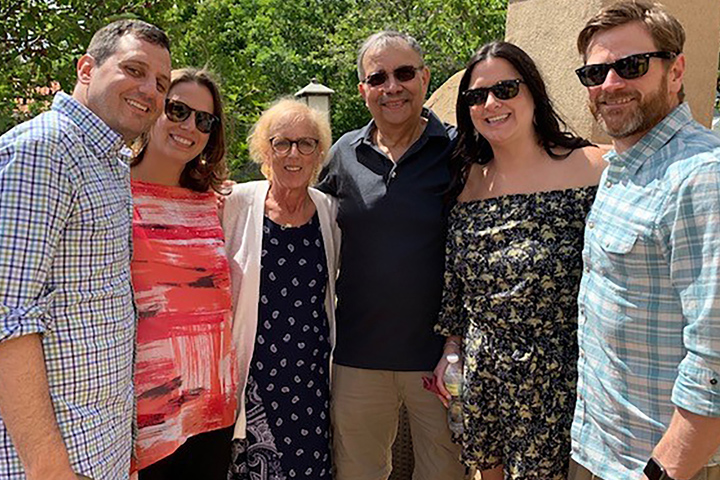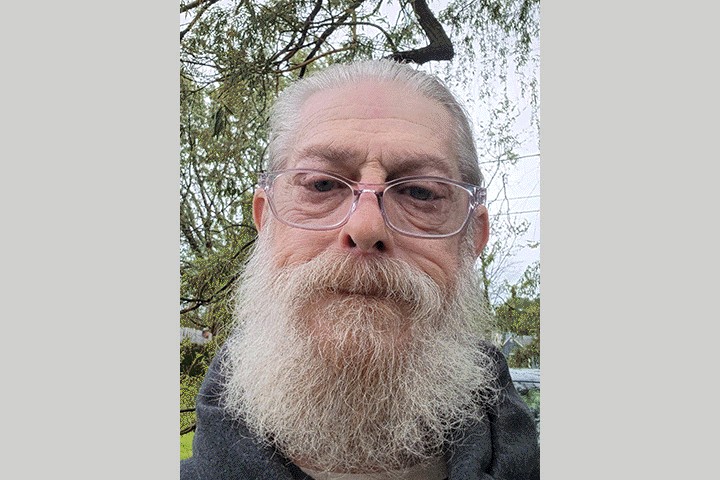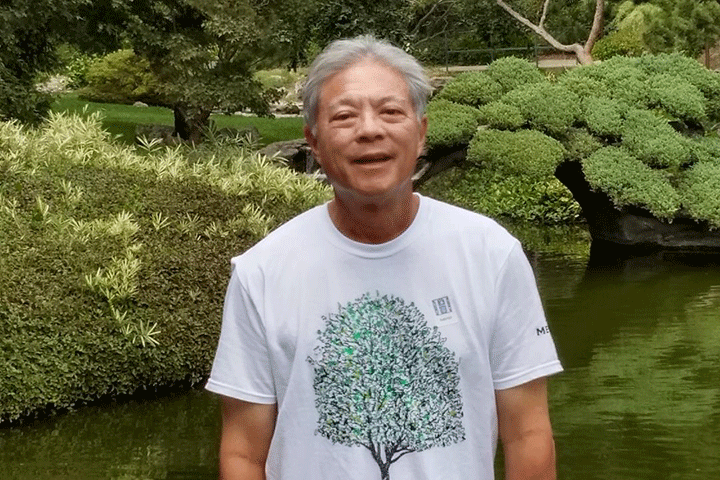Surviving Pancreatic Cancer and Embracing Life

- Unusual blood work results lead to pancreatic cancer diagnosis
- Whipple procedure
- Chemotherapy after surgery
I was diagnosed with pancreatic cancer when I was 66 years old.
As a diabetic, I did a wide range of quarterly blood tests. Dr. Joseph Terrana, my endocrinologist, did not like what some tests showed in my January 2015 cycle—I had a high score on a bilirubin blood test. He scheduled me for a CT scan and, after that, an ultrasound endoscopy. All of these tests pointed to a strong chance of my having pancreatic cancer.
Like many of those with pancreatic cancer, I did not display any symptoms. I had no idea that the cancer was brewing inside of me. Fortunately, I was diagnosed before the cancer spread out of my pancreas.
First, Whipple Procedure
I was referred to Dr. Gene Coppa, the Chairman of Surgery at Northwell Health, Manhasset, New York. My appointment was postponed a week because of a bad snowstorm, but when my wife, Linda, and I met with Dr. Coppa, he recommended that I have Whipple surgery right away. Four weeks after my diagnosis I had the highly complex 8.5-hour Whipple surgery. Dr. Coppa got the entire tumor out, with a clear margin (no cancer cells around the edges of what was removed) and no spread to my lymph nodes. My pancreatic cancer was caught early.
Next, Chemotherapy
When I recovered from the surgery, it was time to start chemotherapy. I needed to find an oncologist. The first one I consulted was very negative, despite Dr. Coppa’s results. We consulted a second oncologist, who offered a clinical trial. I did not take that option because it was 50-50 that I would be given a placebo for treatment. That was not acceptable to me.
Through my endocrinologist, I was referred to Dr. Jeffrey Vacirca, a hematologist and oncologist at New York Cancer and Blood Specialists (NYCBS). His office was in East Setauket, New York, not that far from my home in Commack. Although he did not paint an overly rosy outlook, he offered both empathy and hope, which was important. And he was sure I would make my daughter’s wedding in seven months.
Dr. Vacirca recommended a three-drug protocol during chemo: Gemzar, Abraxane, and Xeloda. I had a port inserted in my shoulder, so I would not need a new needle for every treatment. Turns out I was allergic to Xeloda and had to stop taking it. (I was warned before taking it that I might have bad side effects. But I wanted to go ahead.)
During chemo treatment I made a big effort to stay happy—I attended meditation class with one of my daughters, I went to the gym even though I couldn’t do much exercise, and I kept my brain as sharp as I could by writing blogs and exams for my colleagues (I was a long-time business school professor at Hofstra and just recently retired). I finished chemotherapy on August 26, 2015.
Embracing Life after Pancreatic Cancer Treatment
I had to learn how to regulate my blood sugar after the Whipple. Where I had been a type 2 diabetic, I was now type 1 and would have to inject a lot more insulin. I also started taking drugs for my digestive system, during chemo and to date. I take Creon (pancreatic enzymes) and Zofran (for nausea) with meals, and prescription Prilosec once a day. During chemo, I also needed periodic medications for low iron and a low white blood cell count.
As a result of the Whipple surgery, I still have side effects of periodic diarrhea, stomach cramps, and abdominal tightness. Because of the chemotherapy, I developed osteoporosis. I take shots twice a year for it.
At present, I am cancer-free. I still go to NYCBS for CT scans, blood work, and medications. Even though I expect good feedback, I am always nervous the week before a scan. I am one of the fortunate 5 percent making it this far. I am told that every time I have a clean CT scan, the better my long-run chances are.
I am THRILLED to be alive and to be able to do what I can. I have adjusted to my “new normal.” Happiness is a choice—my choice. Most of my friends don’t understand how I can be so upbeat. I do. I’m ecstatic to still be around.
I am a VERY lucky survivor of pancreatic cancer. I am truly blessed. I recognize that every day. As of July 2019 it is now four years, six months, and counting, since my Whipple surgery. To help others and their families, I have written Surviving Cancer and Embracing Life: My Personal Journey. The book is available free. Why write the book? To those whom much is given, much is expected. My mission is to give back to the pancreatic cancer community. Thanks to the Lustgarten Foundation for all of its efforts—I am participating in its walk on Long Island in October 2019, raising money for Team Joel.
Watch Joel tell his story in “I Must Give Back.”






